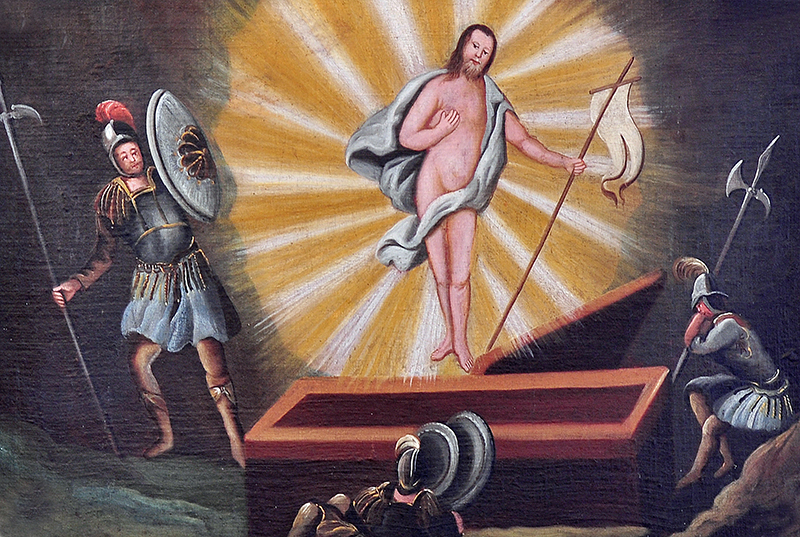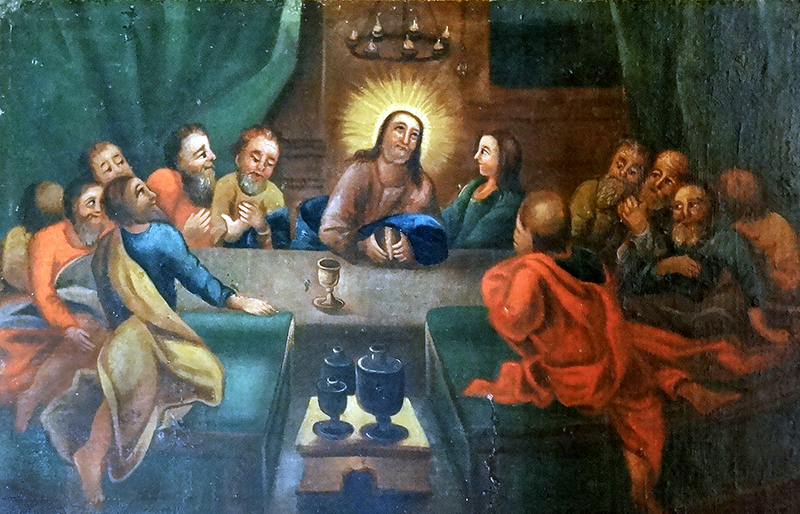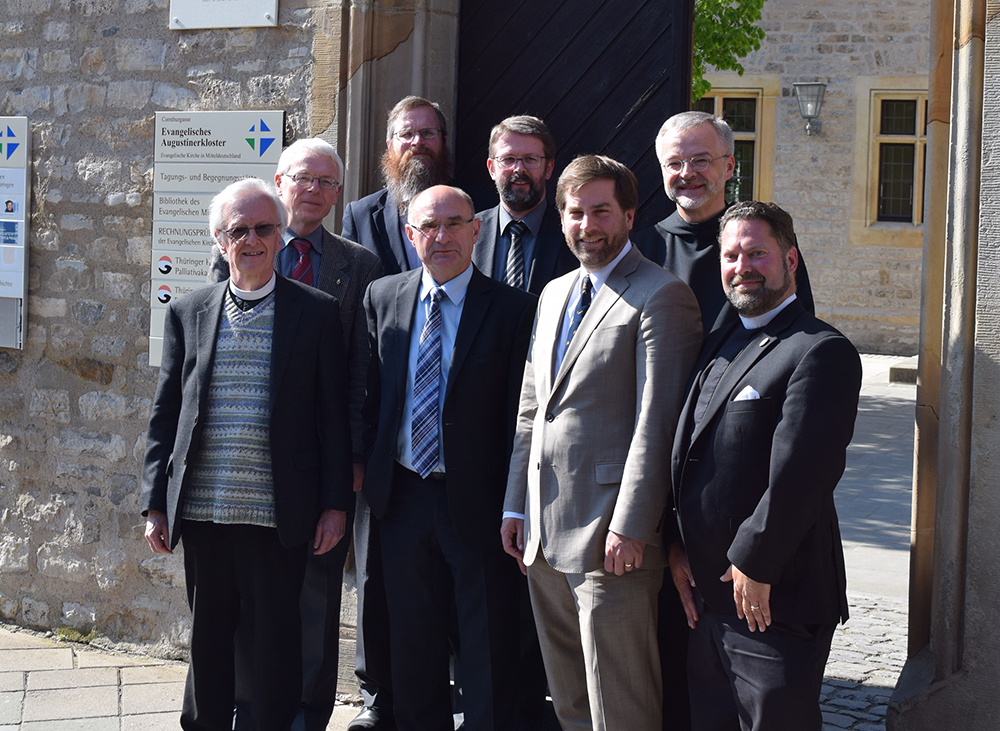
The Resurrection: Daniel Hisgen, 1770 (St. Michael’s in Oberkleen. Photo: Kurt Hanika).
by Hans-Jörg Voigt
Alleluia! The Lord is risen, He is risen indeed! Alleluia!
With voices united, the Evangelists and Apostles witness to this fact: the grave of Jesus was empty on Easter morning, for God endowed His Son’s body truly with new life. They saw Him. They touched Him. They ate with Him. The certainty of this Easter message is the centrepiece of our faith. “If Christ has not been raised, then our preaching is in vain and your faith is in vain” (1 Corinthians 15:14).
Perhaps you’ll ask, what does this have to do with my life in these difficult days of the pandemic? The answer: by the power of Holy Communion, the life of the resurrection enters your life. This Sacrament has been called “pharmakon athanasias”—that is, the medicine of immortality. In the Lord’s Supper, you receive immortality.
Why is this sacramental faith so important? Let me point to an example from the area of medicine: for some time now, the so-called placebo effect has been known. It refers to the therapeutic effect that occurs when people take pills without any active pharmaceutical ingredients (i.e., placebos), where the patients are not aware of the fact that they are not receiving a real effective medicine. Sometimes placebos are used to test the efficacy of a newly developed medicine. At times, such placebos set free some rather astounding healing results within the test patient.
But just because placebos can be effective to some extent, no one would therefore deduce that he has no further need for medicines with real active ingredients. A cancer patient does not need symbolic treatment but real effective medicine.

The Last Supper: Daniel Hisgen, c. 1785 (Evangelische Kirche in Oppenrod. Photo: Cherrubino).
The Lord’s Supper is “pharmakon athanasias,” the medicine of immortality. Since we have succumbed to the disease of eternal death, we do not need a symbolic Lord’s Supper; we need a Sacrament with real effective ingredients: the body and blood of Christ.
Why is that so important? When you are no longer strong enough to believe, then despite everything this “pharmakon athanasias” will help you. When you despair and are sad, then this “pharmakon athanasias” will help beyond all reason. It isn’t up to you to do everything in your power to believe before the salutary effect of the Sacrament unfolds in your life. No, it is Christ, in His sacrifice on the cross, who has done all that in your stead. God’s confirmation and seal is the resurrection of His Son.
The Lutheran belief in the real presence in Holy Communion—which we share with the Eastern Orthodox and Roman Catholic Christians all over the world—is a very tangible belief. To maintain the doctrine of the real presence, Martin Luther staunchly withstood princes and theologians. Because he faithfully confessed the doctrine of the real presence, the hymn writer Paul Gerhard was dismissed from his pastorate and lost his income, simply because he withstood the ruler’s contrary command in this matter. To defend the doctrine of the real presence, the mothers and fathers of Confessional Lutheran churches in Germany felt compelled to leave their home country; they emigrated to Australia and to North and South America. It was all about the hope of the resurrection that is confirmed in the Sacrament of the Altar.
The pandemic that we’re subjected to these days can leave us feeling disembodied: no touching, no hugging, no common meals, no visits, no big wedding celebrations… it’s enough to make a person cry! We do everything on-screen these days—and always there are little inserts with the latest figures of the virus. There is hardly anything with bodily reality!
But wherever in the world the Holy Supper is celebrated, the opposite is taking place: there you receive the true body and the true blood of Christ for the forgiveness of your sins, so that you may have eternal life. Yes, this “pharmakon athanasias” brings forgiveness, consolation, and true Easter joy.
Alleluia! The Lord is risen, He is risen indeed! Alleluia!
———————
Rev. Dr. Hans-Jörg Voigt is Bishop of Germany’s Independent Evangelical Lutheran Church (Selbständige Evangelisch—Lutherische Kirche) and Chairman of the International Lutheran Council.

